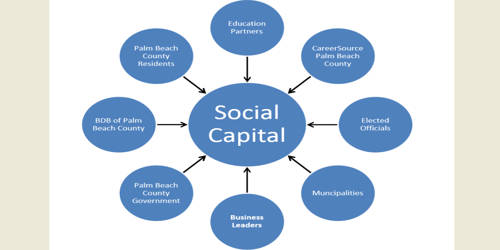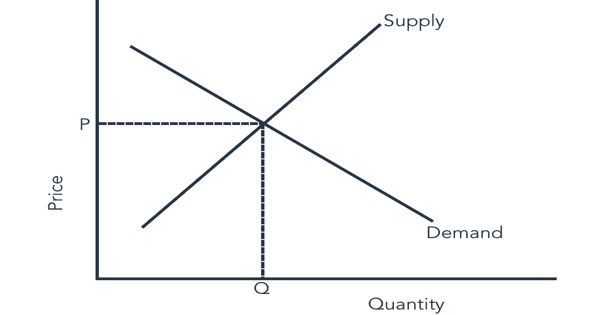Social capital refers to the intangible resources embedded within interpersonal relationships or social institutions. It is the effective functioning of social groups through interpersonal relationships, a shared sense of identity, a shared understanding, shared norms, shared values, trust, cooperation, and reciprocity. It is the networks of relationships among people who live and work in a particular society, enabling that society to function effectively. It can exist in three major forms: as obligations and expectations, as information channels, and as social norms. It is a term used to describe a person’s participation or position within a particular social group, which contributes to their lives in certain ways. Social norms provide the criteria for rewarding or sanctioning individual actions. It can impede or restrict the actions of individuals and can result in social exclusion and isolation.
Social capital is a set of shared values that allows individuals in a group to work together effectively to achieve a common purpose. It is a measure of the value of resources, both tangible (public spaces, private property) and intangible (“actors”, “human capital”, people), and the impact that these relationships have on the resources involved in each relationship, and on larger groups. For example, in small towns, people tend to know each other more than those living in cities, and they bond more over commonalities. In this case, the people within the town possess significant social capital which strengthens the community. The commonalities of most definitions of social capital are that they focus on social relations that have productive benefits. It is generally seen as a form of capital that produces public goods for a common good. The importance of social capital has been investigated in relation to regional development, public health, economic and business performance, career success, innovation, and organizational performance. The concept of social capital is a useful theoretical construct for explaining the disparities in students’ educational performance among different nations.
Social capital is important because it represents the productive benefits of sociability. It has been used to explain the improved performance of diverse groups, the growth of entrepreneurial firms, superior managerial performance, enhanced supply chain relations, the value derived from strategic alliances, and the evolution of communities. Our society, economy, institutions, and political system could not exist without social capital. It might have its share of pros and cons, but if it is utilized properly, it can pave the way for an organization’s prosperity. Therefore, social capital provides a framework for understanding a range of positive and negative effects.
















